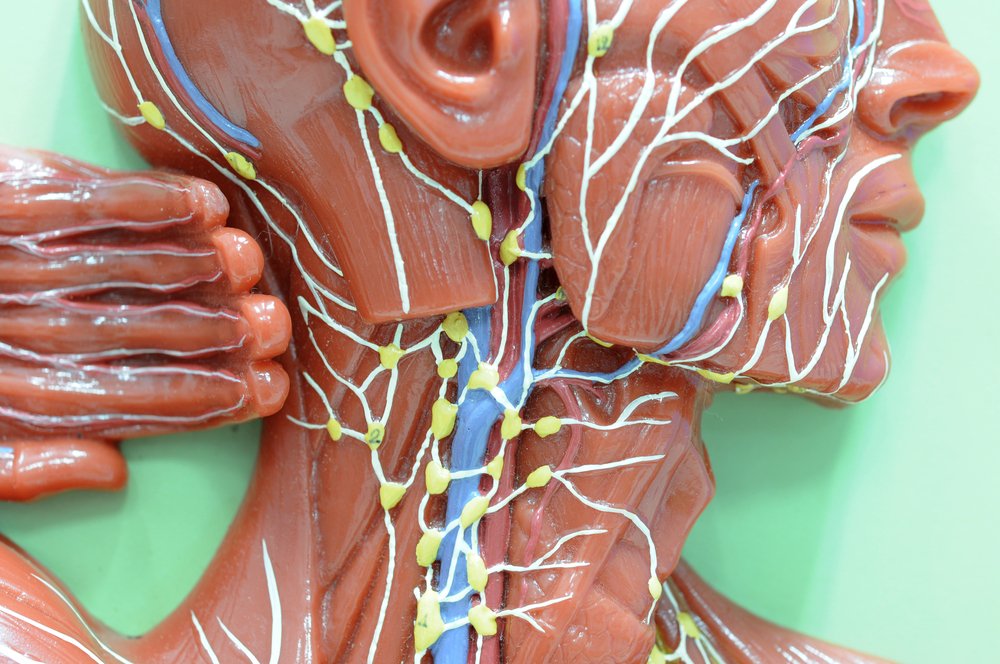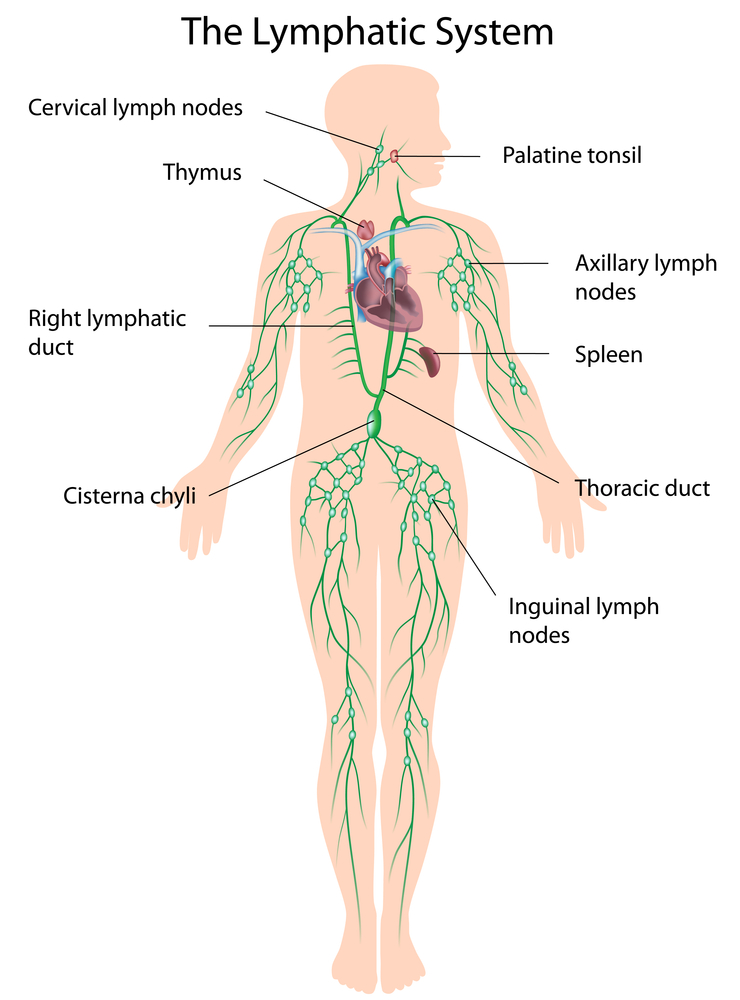
The Lymphatic System – A Quick Guide
The Lymphatic System – A Quick Guide
It’s sometimes easier to appreciate the way our body works when we separate it in to ‘systems’. Ones that work together to achieve homeostasis, a balance in function and health. These systems comprise organs which work together to perform specific tasks. e.g. The digestive system (mouth, throat, stomach, small and large intestine etc) is responsible for metabolising the food we eat to nourish the body.
The Lymphatic System is a combination of organs, glands, nodes and nodules and a network of vessels that connect throughout the body.
Here’s a very simple diagram to show roughly what the lymphatic system looks like:

The 3 overall functions of the Lymphatic System are:
- Drain excess fluid from the body, known as interstitial fluid.
- Carry dietary fats and fat-soluble vitamins (A, D, E and K) absorbed in the gut.
- Protect the body from infection and abnormalities via immune responses.
Principally, the lymphatic system works with other systems in the body to provide nourishment, immunity and to help rid the body of waste products. It does so, partially by collecting interstitial fluid (elements of blood plasma that is filtered from capillaries) which is circulated via lymphatic vessels and becomes lymph fluid, transporting proteins, fats, fat soluble vitamins and waste to relevant areas for utilisation or disposal.
With regard to immunity, specialised cells are created within the system to recognise potential threats to our health and fight off infections or cell abnormalities and access areas of the body via the systems circulation.
The lymphatic system’s circulation, or flow of lymph fluid, is reliant on two key mechanisms. Muscular contractions and breathing. In other words, it is reliant on other systems in order to function efficiently. This support is reciprocated by aiding the transport of fats and fat soluble vitamins from the digestive system and creating antibodies and immune support to infected or injured parts of the body, as well as retrieving excess fluid produced by the cardiovascular system.
How can we support our Lymphatic System?
Here are just a few suggestions to help support a balanced and healthy lifestyle, which could aid in maintaining our lymphatic system.
Regular exercise and activity – you don’t have to run a marathon or walk the peaks of Ben Nevis but regular exercise of any kind will support our respiratory and muscular systems, which in turn will support the Lymphatic System.
Balanced and mindful eating habits – avoiding diuretics e.g. coffee or alcohol, particularly if you have symptoms of lymphedema.
Sleep – 7-9 hours per night is recommended by The Sleep Council for 18 to 65 year olds and it is beneficial to maintain consistency in sleep, in order to stay in tune with our natural cycles or circadian rhythms.
If you would like to know more about therapies and treatments that can help to support your health and wellbeing, feel free to contact us on 01359 408 011 or email via our Contact Us page. We provide free initial consultations, face to face or by phone.
We now have a monthly Manual Lymphatic Drainage clinic which has been created to support people with Lymphedema, Lipedema and those who may experience swollen limbs without diagnosis. See our Clinics and Services page for more in formation.



